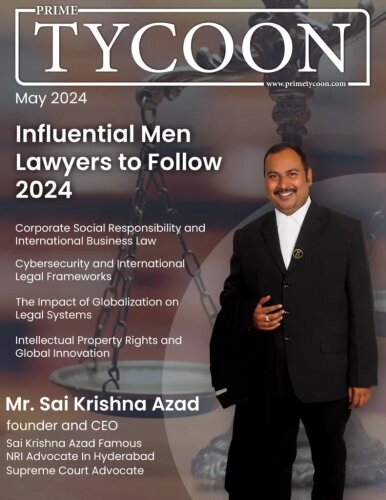Best Faith-Based Law Lawyers in Hyderabad
Share your needs with us, get contacted by law firms.
Free. Takes 2 min.
List of the best lawyers in Hyderabad, India
About Faith-Based Law in Hyderabad, India
Faith-Based Law in Hyderabad, India, pertains to the legal principles and norms stemming from various religious communities and traditions. In India, religious laws govern many aspects of personal and family life, including marriage, divorce, inheritance, and adoption. Hyderabad, with its diverse cultural and religious landscape, reflects the multi-faith legal environment of India. Citizens often rely on family customs and religious laws for resolving personal disputes, making an understanding of Faith-Based Law crucial for legal matters in these contexts.
Why You May Need a Lawyer
People may require legal assistance under Faith-Based Law for various reasons:
- Marriage and Divorce: Legal guidance may be needed to navigate the complexities of marriages and divorces under religious laws, which might differ from civil law.
- Inheritance: Lawyers can help in understanding inheritance rights, which often vary significantly across religious communities.
- Dispute Resolution: Families might seek legal interventions in resolving disputes over rights and duties dictated by religious law.
- Family Matters: Issues regarding custody, guardianship, and adoption often require specialized knowledge of relevant religious legal frameworks.
- Property Disputes: Legal advice is often necessary to deal with property disputes that are influenced by faith-based laws.
Local Laws Overview
The key aspects of local laws relevant to Faith-Based Law in Hyderabad include:
- Personal Laws: These laws vary for different communities such as Hindu, Muslim, Christian, and others, each with its unique legal standards established by religious texts.
- Codified Laws: Acts such as the Hindu Marriage Act, Shariat Law, or the Indian Christian Marriage Act are examples of codified religious laws that provide specific guidelines.
- Customary Laws: Certain communities practice laws based on customs and traditions, requiring legal interpretation and guidance.
Frequently Asked Questions
1. What is Faith-Based Law?
Faith-Based Law involves legal rules and norms derived from religious doctrines and beliefs that are applied in personal and family law issues among various communities.
2. How do I choose the right lawyer for Faith-Based Law issues?
Look for lawyers with expertise in personal and family law and a strong understanding of the specific religious law applicable to your situation.
3. Are faith-based legal decisions enforceable in Indian courts?
Yes, many personal law decisions guided by religious laws are recognized and enforceable by the court, provided they do not conflict with any fundamental rights or national laws.
4. Can I follow civil law instead of religious law for personal matters?
Yes, individuals can choose civil procedures over religious laws in personal matters by opting for court marriages, civil divorces, etc.
5. Do faith-based laws affect property rights?
Yes, property inheritance and division can often be influenced by religious laws, particularly in determining next of kin and rightful heirs.
6. How are custody and guardianship decided under Faith-Based Law?
Custody and guardianship are usually decided based on the child’s welfare, but religious laws may influence these decisions through specific stipulations.
7. Is interfaith marriage allowed under Faith-Based Law?
Interfaith marriages can face challenges under strict religious customs but are permissible under the Special Marriage Act, a civil law provision.
8. How does Faith-Based Law affect divorce proceedings?
Divorce proceedings may vary significantly based on religious laws, affecting settlement conditions, waiting periods, and mutual consent requirements.
9. Are there faith-based arbitration courts in Hyderabad?
Some religious communities have arbitration boards to resolve disputes internally; however, their decisions are subject to judicial review.
10. Can a lawyer negotiate both religious and civil legal systems?
Yes, a skilled lawyer can help navigate both systems, ensuring compliance with religious laws while protecting civil rights and obligations.
Additional Resources
Several resources can aid those needing legal advice in Faith-Based Law:
- State Legal Services Authority: Offers free legal aid to those in need, including issues related to Faith-Based Law.
- Hyderabad Family Courts: Handles disputes relating to marriage, divorce, and family matters for various religious communities.
- Non-Governmental Organizations: Various NGOs provide support in legal matters related to human and religious rights.
Next Steps
If you require legal assistance in Faith-Based Law, consider the following steps:
- Identify Your Needs: Clearly outline the legal assistance you need, whether related to marriage, property, or family disputes.
- Consult a Specialist Lawyer: Engage with a lawyer specializing in the particular faith-based legal matters of concern.
- Gather Relevant Documents: Prepare and organize any legal, personal, or religious documents pertinent to your case.
- Seek Initial Consultation: Approach a legal expert for an initial consultation to understand your rights, options, and potential outcomes.
- Explore Alternative Dispute Resolution: Consider mediation or arbitration to resolve disputes amicably within the framework of relevant religious laws.
Lawzana helps you find the best lawyers and law firms in Hyderabad through a curated and pre-screened list of qualified legal professionals. Our platform offers rankings and detailed profiles of attorneys and law firms, allowing you to compare based on practice areas, including Faith-Based Law, experience, and client feedback.
Each profile includes a description of the firm's areas of practice, client reviews, team members and partners, year of establishment, spoken languages, office locations, contact information, social media presence, and any published articles or resources. Most firms on our platform speak English and are experienced in both local and international legal matters.
Get a quote from top-rated law firms in Hyderabad, India — quickly, securely, and without unnecessary hassle.
Disclaimer:
The information provided on this page is for general informational purposes only and does not constitute legal advice. While we strive to ensure the accuracy and relevance of the content, legal information may change over time, and interpretations of the law can vary. You should always consult with a qualified legal professional for advice specific to your situation.
We disclaim all liability for actions taken or not taken based on the content of this page. If you believe any information is incorrect or outdated, please contact us, and we will review and update it where appropriate.

















